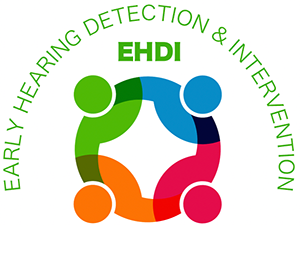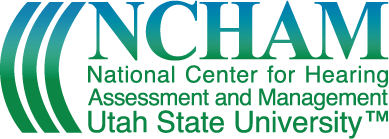Webinar: Plugged in: Continuity of Services
When: September 21, 2021 | 12:00 pm - 1:00 pm MT
Description
This session will explore the evolution of using the coaching model as a process to deliver therapy via the internet to children with hearing loss during a time of uncertainty with social distancing and decrease of in-person services. It will apply the components of a coaching model and adult learning theory to Listening and Spoken Language therapy delivered virtually providing continuity of care when a provider can no longer meet in person due to social distancing and COVID-19 restrictions. A goal of the coaching model is to empower the parent through knowledge, development of skills and the confidence to use their skills to improve their child's outcomes. Parental Self Efficacy (PSE) describes the belief that a parent holds regarding their ability to be a successful parent and their competencies within their parental roles. A parent's self-efficacy and stress levels may impact their ability to maintain typical routines fostering language development. Therefore, it is important for an early interventionist to consider tools and strategies to help identify and address stressors that may be impactful. Ambrose (2020) states that early intervention professionals should ensure their intervention services use a coaching model that helps parents understand their potential to influence their child's outcomes, builds PSE, and supports parents' involvement in facilitating their child's development. This session will explore case studies of family involvement in early intervention services before, during and after a global pandemic and strategies to address quality of life and PSE through a coaching model.
Learning Objectives
- The participant will define the coaching process as it applies to virtual service delivery.
- The participant will define parental self-efficacy and discuss the impact on family participation in early intervention services.
- The participant will examine case studies related to intensity of service delivery, family involvement, and quality of life during a global pandemic.
Presenters
Michelle Graham, St. Joseph Institute for the Deaf
Michelle is the Lead Early Intervention Therapist at St. Joseph Institute for the Deaf in St. Louis, Missouri. Michelle is an experienced Listening and Spoken Language Specialist and maintains teacher certification in the area of special education. Michelle provides Early Intervention therapy services to families in person and via internet therapy.
Cheryl Broekelmann, St. Joseph Institute for the Deaf
Cheryl Broekelmann, LSLS Cert. AVEd, is the Director of Operations at St. Joseph Institute for the Deaf in St. Louis. She has over 25 years experience as an educator of the deaf. She has presented at workshops and at AG Bell conferences. Some of the titles of her presentations are: "Needs of Parents who have Children with Hearing Impairment", "Lights, Camera, Action", "What Do I Do When They Want to Learn About Dinosaurs?", "Meeting the Needs of Families of Children Who are Deaf or Hard of Hearing", "Demystifying Deafness", "Preschoolers Rule With The Right Tools", "Bridging Distances with Tele-Therapy for Children with Hearing Loss" and "Collaboration + Coordination = Communication". Cheryl has an undergraduate degree in Deaf Education from Fontbonne University and a Masters of Education in Early Childhood Administration.


